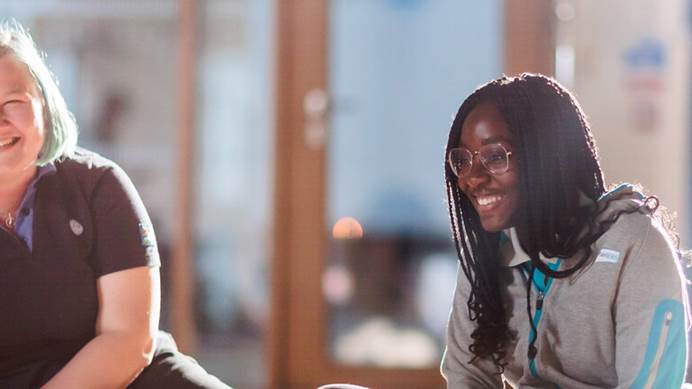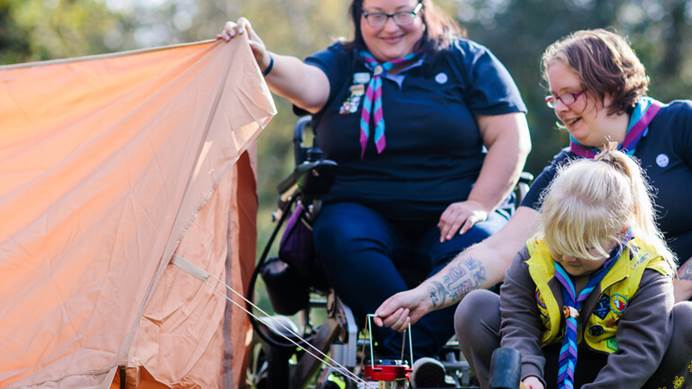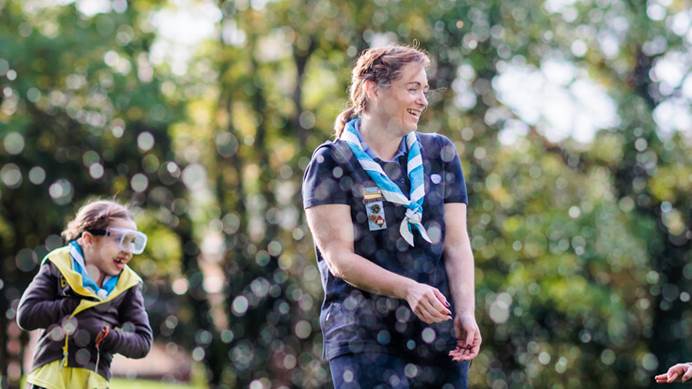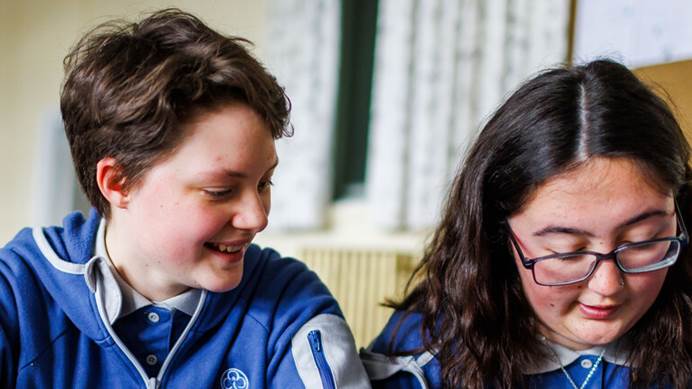How outdoor adventures help with my mental health
Maddie White, chair of youth panel Pioneer, on the positive effects the outdoors and adventure have on her mental health
This blog talks about anxiety, poor mental health and academic stress. If that's not something you're able to read right now, please feel okay to close this page.
At university Maddie White found herself at a crossroads, feeling stuck and anxious. Then a trip to an American guiding summer camp changed her life completely.
This Mental Health Awareness week, Maddie shares her story with us. She explains why she thinks everyday adventures outdoors and new experiences can create vitally important connections with nature, help us learn to manage risk in a safe way and lead to expansive ways of looking at the world.
Maddie White
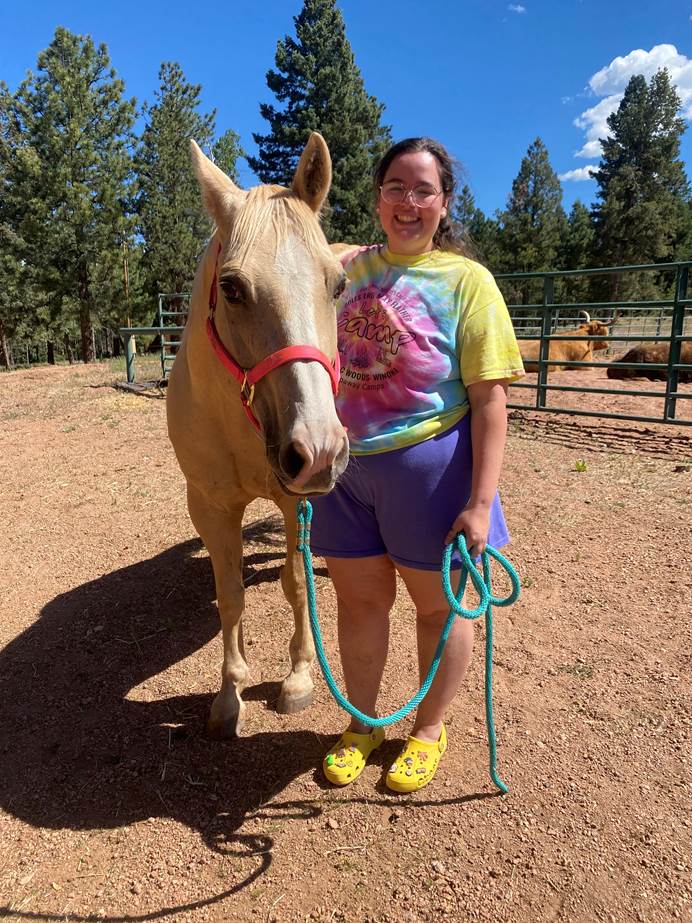
Feeling stuck
'I’d experienced lots of outdoor adventures growing up like kayaking on holiday and outdoor fire cooking with Guides at weekly meetings and loved it. The connection to nature I felt, which was created by my parents and guide leaders, was great for my mental health growing up as it kept me active in a way that was different to school sports.
However, when I got to university my mental health began to suffer and I felt stuck, I wasn’t in a good place or enjoying my course. Plus, it was my first time living away from home, I was anxious and really feeling the academic pressure and just wanted to run away! I saw some adverts for American summer camps on campus at university and decided it would be the perfect way to escape – but it ended up being so much more than that.'
Finding a new community
'I ended up working at a Girl Scout camp for the summer and it turned out to be the most wonderful thing I ever could have done. Like all my experiences with Guides, it was such a safe nurturing space. The care and attention that the camp director and the staff put into curating the community and programme was immense.
I would swim twice a day in a lovely lake and then do an activity like archery or high ropes or zip line. In between we'd do shelter building or arts and crafts or tie dye or scavenger hunts. The time outdoors gave me the space to get better and the staff support was amazing, with their help I began to question why I had to stay stuck on my course upon my return to England. As we were building our physical bravery, we were developing mental resilience too.'
Realising things can be different
'Meeting different people, somewhere completely different, broke me out of the bubble of believing there was only one way to do things – get a first class degree and a good job in the city. On top of that, living outdoors cleared out the cobwebs and stress of being at university in England and felt like a massive reset of everything in my brain.'
A new direction
'Following my chats with the staff it dawned on me that "ok, I'd lose a year, but I can just change my degree. I don't have to do this. There’s nothing physically forcing me to do it." So, I came back and changed my course and the direction of my life and although it was scary I felt so much better. Going to camp was the most transformative experience for me.'
What I learnt
The risk I took to go to camp built my resilience for life
'The importance of outdoor adventures in helping build resilience is key to strong mental health. It’s risk taking in a safe environment. The risk-taking I took to go to camp, the risk-taking every day I was there to launch myself off the dock or do the zip line or try an archery trick, it all builds your appetite and tolerance for measured risk and proper decision making. At camp I developed the courage to take the risk to completely change university course and start from scratch again in a new direction.
I want teenagers, Guides and Rangers, to be in an environment that teaches them those skills, so when they start their first jobs, need to do something challenging like taking care of a loved one, go to university, or later in life, they don’t feel stuck. Because they’ve learnt to take risks early, they make better, braver decisions.'
Finding outdoor adventures every day helps with mental health
'I work at a boarding school as a housemistress, which means I'm there to look after the kids with everything outside of their schooling. I try to show the kids that outdoor adventures can be found every day. This morning, I went swimming at a mill pond nearby with a friend. And the other day I took a few kids on a walk to try identify as many trees as we could and learn about new ones we didn't already recognise. These small things add an extra element of connection to the world and our place in it. '
Getting outdoors helps young people’s mental health
'If a kid is upset and wants to vent and talk to me, rather than sit in the office I say "let's go for a walk and you can chat to me as we wander." That helps with getting teenagers to open up, because they don't have to look at me directly so it's less intimidating and more casual to be walking around strolling. It also helps calm kids down to a level where they can more readily communicate what's going on with them. If they’re crying or in an anxious state, the outdoors can help regulate their emotions.'
Outdoor adventures build an expansive mindset
'I believe the more knowledge and experience of the wider world you have, the more you can recognise your potential within it; being outdoors, discovering new things is a great way to access that. Data from our Girls’ Attitudes Survey regularly shows that anxiety is peaking in girls and young people. For me, outdoor adventures are one way to counteract that and, vitally, promote positive mental health. They have definitely done that for me.'
Information and resources
If you want to find out more about mental health and guiding go to our page full of information and resources for guidance, which includes links to external organisations such as Samaritans and Mind.
If you're concerned about a member, head to our safeguarding page.
